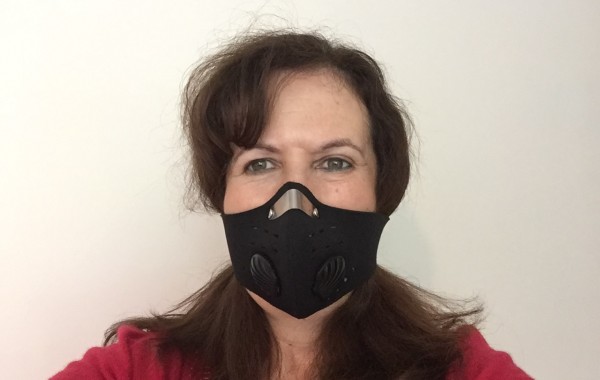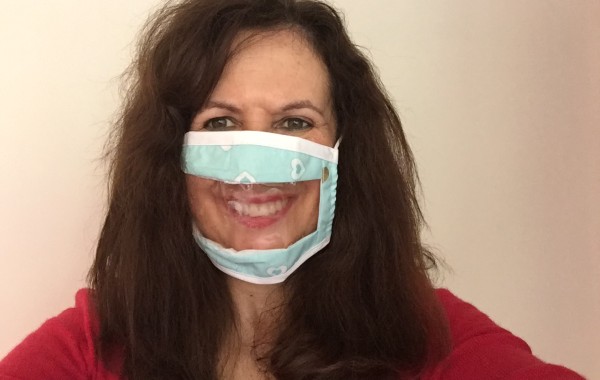
Writing in July 2020, masks are compulsory in the NHS and on public transport in England and more people turning to them for safety and health reasons. Jane reflects on how masks can affect communication.

This is a stressful time for everyone. Restrictions to protect our physical health are affecting the mental health of many of us. Being able to communicate with other human beings is crucial to feeling ok. It has been shown that even simple interaction with a person raises our self-esteem. It is recommended by the NHS as one of the 5 ways to well-being. Even a short exchange with a stranger can boost our ‘feel good’ serotonin levels.
Wearing a solid mask reduces access to a person’s facial expression considerably. When the mouth is covered, sound will also be more muffled. Bear in mind Dr Mehrabian’s formative research showing that tone carries more meaning than words and that facial/visual expression can carry 55% of meaning, and it’s obvious that masks will affect everyone’s understanding of each other.
Staff at Bristol’s Nightingale Hospital realised rapidly that wearing Personal Protective Equipment (PPE) made clear communication between staff more difficult. And it created risks as a result. They undertook to learn a very basic signed system called Makaton which was designed to support people with learning disabilities’ understanding of English. The Deaf community was alarmed that this was intended to be a substitute for British Sign Language (BSL). The Bristol representative reassured them that this was for internal communication only.
If the challenge for hearing NHS staff wearing masks is great, what is it like for those with no, or limited, hearing? The numbers are interesting and alarming. Mehrabian estimated that about 38% of our understanding of spoken language face to face is ‘vocal’ i.e. auditory. If all or most of that 38% that is removed (by deafness) lipreading alone gives us access to between 35 and 45% of sounds in English. But if someone’s mouth is completely covered up, even that limited access is removed. So we lipreaders are left with very little. And when everyone is under greater stress, people may well be less patient and can jump to negative conclusions if others do not understand them.
Many older people rely at least partly on lipreading, without necessarily realising that they do. It can be distressing to struggle to communicate when that visual support is missing.
So, what to do? One practical part-solution is to get hold of a clear mask or face shield which lets others see your mouth. The one in the photo above is from Molly Watt Trust, a charity raising awareness of Usher Syndrome which includes deafness and visual impairment. Cleaned with a thin, undiluted layer of soap or washing up liquid, the mask will not steam up and will give others a chance to lipread you.
As ever, awareness and not assuming negative attitudes always helps and can help in these situations.
- If you ask someone to move away in a public place and they don’t respond, remember that they could be deaf or hard of hearing. They probably aren’t ignoring you!
- If you wear a mask and struggle to make yourself understood, consider that the other person may need to lipread, and the huge challenges this involves. Don’t get angry or impatient. This will only increase your stress and the other person’s.
- If you don’t have a clear mask, remember that you will have blocked 90% of communication so offer to write down your message or use gesture to help convey it or finger spelling if you can. It only takes a short time to learn the alphabet and is so versatile.
Result CIC has carried out several projects with D/deaf people. And feel free to contact us for a conversation about effective communication.
Finally, can you tell that in the pictures above I am smiling? The loss of a smile is perhaps incalculable as it shows kindness and openness. Make sure you show this, even if your mask hides your smile!